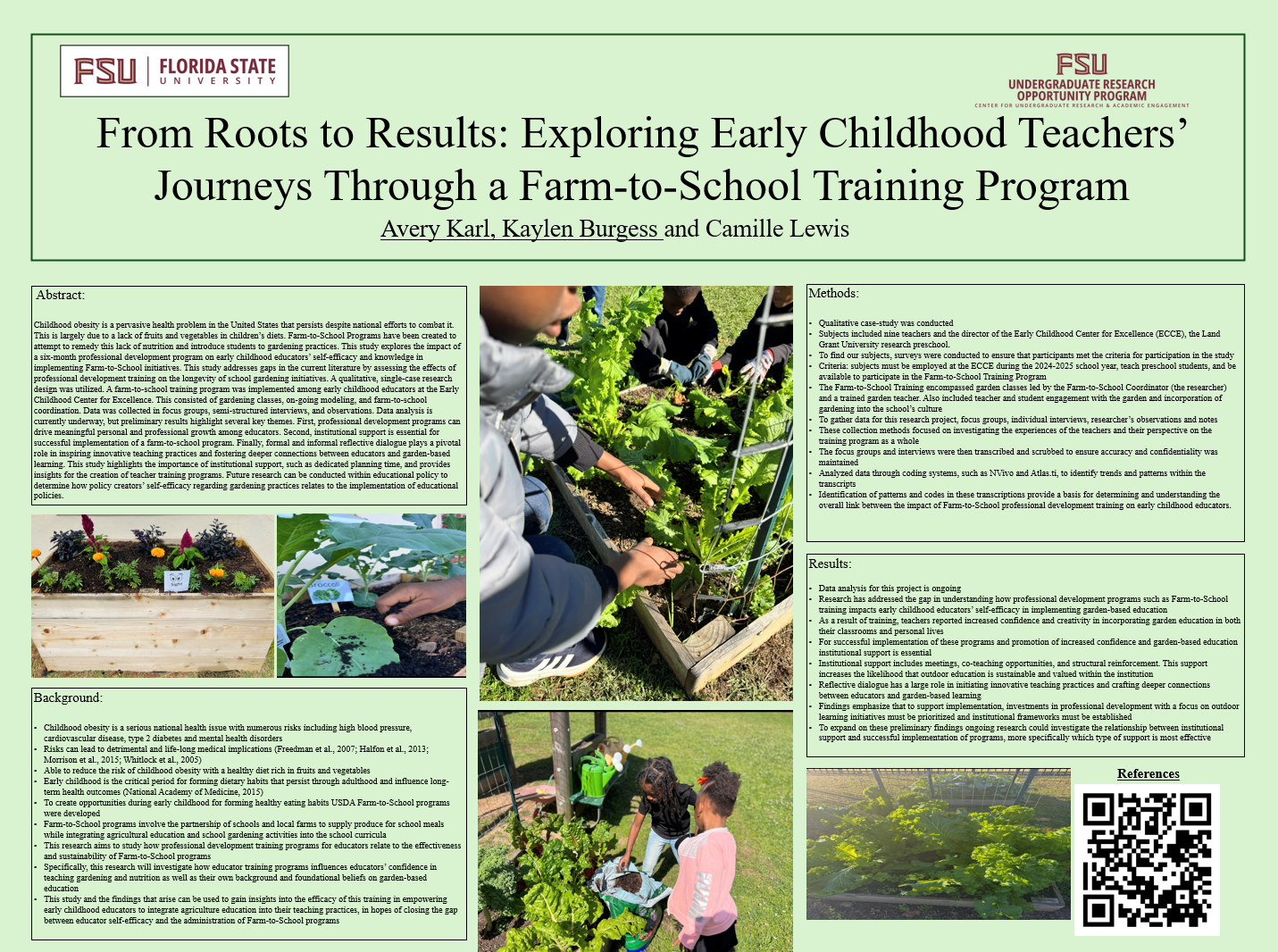Research Symposium
25th annual Undergraduate Research Symposium, April 1, 2025
Kaylen Burgess Poster Session 3: 1:45 pm - 2:45 pm/ Poster #2

BIO
I am a second year undergraduate student here at FSU majoring in biology on the pre-health track. I plan on becoming a physical therapist specializing in pediatrics and/or oncology. I am interested in rehabilitative medicine, environmental sciences, and health overall.
From Roots to Results: Exploring Early Childhood Teachers’ Journeys Through a Farm-to-School Training Program
Authors: Kaylen Burgess, Camille LewisStudent Major: Biological Sciences
Mentor: Camille Lewis
Mentor's Department: Educational Psychology: Learning and Cognition Mentor's College: Anne's College of Education, Health, and Human Sciences Co-Presenters: Avery Karl
Abstract
Childhood obesity is a pervasive health problem in the United States that persists despite national efforts to combat it. This is largely due to a lack of fruits and vegetables in children’s diets. Farm-to-School Programs have been created to attempt to remedy this lack of nutrition and introduce students to gardening practices. This study explores the impact of a six-month professional development program on early childhood educators’ self-efficacy and knowledge in implementing Farm-to-School initiatives. This study addresses gaps in the current literature by assessing the effects of professional development training on the longevity of school gardening initiatives. A qualitative, single-case research design was utilized. A farm-to-school training program was implemented among early childhood educators at the Early Childhood Center for Excellence. This consisted of gardening classes, on-going modeling, and farm-to-school coordination. Data was collected in focus groups, semi-structured interviews, and observations. Data analysis is currently underway, but preliminary results highlight several key themes. First, professional development programs can drive meaningful personal and professional growth among educators. Second, institutional support is essential for successful implementation of a farm-to-school program. Finally, formal and informal reflective dialogue plays a pivotal role in inspiring innovative teaching practices and fostering deeper connections between educators and garden-based learning. This study highlights the importance of institutional support, such as dedicated planning time, and provides insights for the creation of teacher training programs. Future research can be conducted within educational policy to determine how policy creators’ self-efficacy regarding gardening practices relates to the implementation of educational policies.
Keywords: farm-to-school, child development, nutrition

